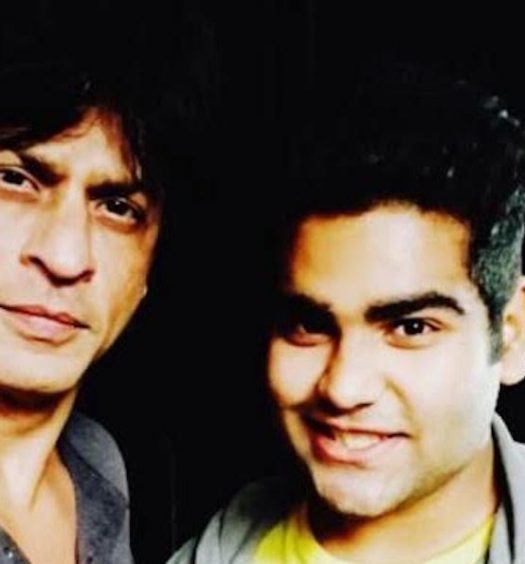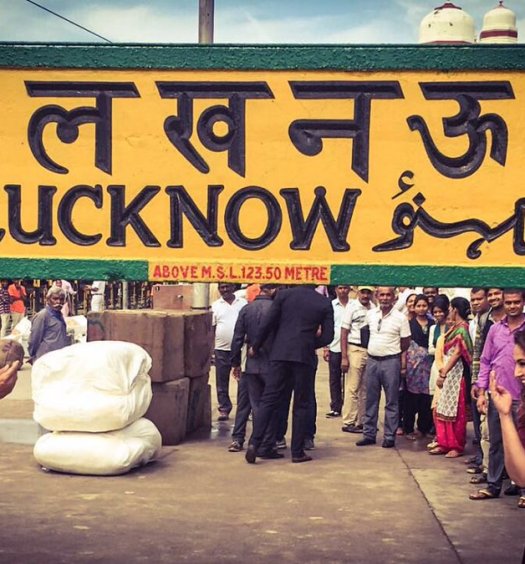Preety and Vinay: Game changers of online films with HumaraMovie
Digitization of cinema has changed the gamut of filmmaking. Accessibility to the medium has increased, giving rise to countless opportunities. Multiple formats have emerged, key among them being short films, which have become a major property in the market. Online players like HumaraMovie have become relevant more than ever. We caught up with the founder members of HumaraMovie, Preety Ali and Vinay Mishra, about their brainchild and their way forward.

Preety Ali
How did the conceptualization of HumaraMovie happen? How has the viability of the short film format improved from the time you started?
We started because we wanted to understand this space and work with the amazing talent that is coming up. This is the best place to work with budding talent. We are pioneers in this space. Unlike others we don’t focus on any particular genre. We back any content which we think is good. We look at content which we believe has the ability to be long running. We started in 2011 and launched in 2012. Over a period, we have worked with 200 plus filmmakers. All of them are young, talented and energetic.
Overall, the digital space has become attractive. A lot more people are coming up and joining it. Fortunately, it is not just limited to people looking for situational or viral stuff. People are now looking at good content as well. We see that happening on our channel too. Today we have 50 million views, a100,000 subscriber base and we clock between 2.5 to 4 million views a month. Our watch time is the highest. Those are serious viewers of authentic content.
The digital space is not just limited to people looking for situational or viral stuff
Tell us about your roles in the company and how are the duties bifurcated?
Preety: We don’t have any official division of duties but we operate according to our strengths. Vinay was not connected with the media industry as much as me. He is a school friend and was staying in the US. It was Vinay and his wife Pallavi Rohatgi’s (She is also one of the co-founders of HumaraMovie) idea to start this digital platform for short films. Since, I was already working in this field, I was more than happy to be associated with them. Initially, I was more involved in the creative aspects, such as speaking with filmmakers, discussing ideas and taking them on board. But now the role is such that we take almost every decision jointly.
What is the thought process that goes into backing a project? What is the kind of content you look for?
Vinay: As Preety said, she is experienced as far as this field is concerned. So, she knows quite a bit of it. For me it has been a learning experience. Over a period of time, my thinking has also evolved and I can judge projects better than what I would, when I just started. Our process is very simple. Anyone with a script can come to us. We meet and read. If we like the pitch, we have a detailed discussion. If we get a good feeling, we go ahead with backing the project. We give everyone a chance and don’t judge anybody on the basis of their prior work.
READ: BACKING A FILM IS THE BEST THING THAT A PRODUCER CAN DO – DEEPSHIKHA DESHMUKH
How can one approach you for a pitch?
We are very easily approachable (Both laugh). Just come to our office. We meet everyone and listen to story ideas.
What is the revenue model that you’ll follow? What is the association and understanding with filmmakers like?
Right now the revenue is very limited. We have just been investing in this space. The reason behind this investment is that we are very sure that the next set of talent making it big in this space is going to come from HumaraMovie. The revenue model is ad-based revenue and is minimal. The other model is brand sponsorship. But the latter is very limited right now.
It’s a simple relationship with the filmmaker. They come to us with content and we provide them with the infrastructure to make it happen. The filmmaker also gets to share fifty percent of the revenue for a period of time.
We are very sure that the next set of talent making it big in this space is going to come from HumaraMovie

Vinay Mishra
You have also backed two feature-length releases. How was the response to that; what steps are you taking towards producing more indie feature-length content?
The first film that we backed was Greater Elephant. It was an enjoyable process as well as a learning one. We tried to apply all sorts of different approaches to it. We released it locally in Pune and tried a word of mouth campaign. Srinivas Sunderrajan, the director of that film, also has a following of his own. And the film generated reasonable amount of positive reviews.
The next film was ‘Shuruaat Ka Interval’. It was a compilation of short films. That again did very well. As a matter of fact, it is in the list of Best Films of 2014 on IMDB. It is on Netflix, Amazon and various other leading platforms. Because of its success, we are putting together ‘Shuruaat’ again this year. The topic for this year is ‘Shor Se Shuruaat’. Eighty percent of the production has been done. Now we are in the post production stage.
We have identified a couple of directors to make indie features with. We are already in the process of working on the scripts.
READ: PVR DIRECTOR’S RARE AND HUMARAMOVIE LAUNCH SHURUAAT
Shuruaat as a festival provides an extensive platform for talent. What according to you sets it apart from other festivals, also what are the incentives that the winners get?
Shuruaat is one of its kind as it provides a platform for interaction with the stalwarts from the industry. That is the biggest incentive. This mentorship programme is almost like experts hand-holding the ones who have just begun. It involves all stages of filmmaking, from scripting to shooting and all the way to the post production of the film. That is a big opportunity that young filmmakers get. This is the fourth edition that we are conducting.
Shuruaat is one of its kind as it provides a platform for interaction with the stalwarts from the industry
Tell us more about Shuruaat 2016, will it be on similar lines as Shuruaat ka interval? Again, what kind of films are you’ll looking at?
It is not genre specific. ‘Shor’ can have different interpretations. We are interested in how every filmmaker looks at the topic differently. It could be comedy, surreal, sweet, slice of life or anything that they feel is their truest voice. We are always surprised that not a single film is similar to the other in terms of genre. The talent has been overwhelmingly surprising every year.
Your last masterclass series was conducted by Sriram Raghavan and Pooja Ladha Surti. What is the objective of this monthly series? When do we see the next masterclass; also how do you go about choosing the people (filmmakers etc.) to interact with the audience?
The intention of our masterclass is to make it a little more academic than the rest. This masterclass is not about asking questions from personal lives. The key focus is on the craft of cinema. When Imtiaz Ali came he conducted it with Jab We Met. When Sriram Raghavan was invited, he did it with Johnny Gaddar. We will be doing a masterclass with Homi Adjania with Being Cyrus. We try to bring it around one film so that the questions can be little more focused. It’s usually around path-breaking films by these filmmakers. Similarly, we will go down the path and try to do classes with Zoya Akhtar, Sudhir Mishra and others.
As far choosing them is concerned, they choose themselves. It all depends on their availability. It’s a question about how much time they have. Most of the people at HumaraMovie are real film buffs. We talk to the mentors and if they agree, they come. We can’t choose them. For example, if we have to call Shyam Benegal there is no question of us choosing him. He would choose us. We choose the participants. We put the details on Facebook and invite participants. If the number of participants is more than the seating capacity, we go for a lucky draw. One has to register for it as we do it in conjunction with Google YouTube and it’s their policy to know who is attending.
The intention of our masterclass is to make it a little more academic than the rest

Sriram Raghavan with Vinay Mishra at the second edition of the Masterclass
What is the fees like?
It’s a free of cost programme. HumaraMovie doesn’t make any money (Both Laugh).
HumaraMovie doesn’t make any money
Vinay, how did this shift from other industries to entertainment happen?
I have been an entrepreneur as well. I had an event in my life and I got lucky and made a decent amount of money, where I had the choice to do what I felt like. If you ask people about their likes and dislikes, no one will ever say that they don’t like movies. I was in New York. I did a short-term course from NYU and got back here.
Preety, you have worked in feature films. How did you decide on foraying into the short format?
I have been in this space from quite some time now. Ranging from television to ads to features, I have done it all. I started my career in this space itself. When Vinay and Pallavi came down, it was their suggestion to start this and asked me to be a part of it. I was more than thrilled because it was a natural progression. I had the experience of making large films but here I was, getting the opportunity of owning work which I could be proud of. I thought it was a good idea to join. As I said before, I am waiting for HumaraMovie to make lots of money (Laughs).
READ: THE EXPERT GUIDE TO PRODUCING INDIE SHORTS
And how is producing short films different from producing features?
Pretty: On feature films, I worked as a line producer and as an executive producer. I was working under someone else. But here, I am the boss. I take all the strategic decisions. So, there is a shift that way. Otherwise, the process of producing features and shorts is the same. In fact, a lot of times producing short films is even more difficult. This is because the money is limited. So, it’s more challenging yet interesting. However, basic challenges of production are the same.
A lot of times producing short films is even more difficult than producing features
Lastly, what are the upcoming goals for HumaraMovie?
Now we want to move up the value chain and start doing longer content. Whether, it is episodic or the feature film format. We are in conversation with various people to partner with us and do it. We will also continue doing what we do because that’s something that we enjoy the most.



